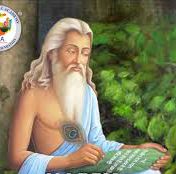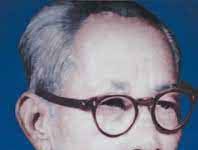Valmiki | Brief Biography
Valmiki | Brief Biography
Valmiki is considered as the foremost poet and the author of the Hindu epic “Ramayana,” one of the two major Sanskrit epics of ancient India, the other being “Mahabharata.” Although there is no historical evidence to prove his existence, Valmiki is regarded as a legendary figure in Hinduism and is believed to have lived around 500 BCE. Here is an exhaustive biography of Valmiki:
Early Life
Valmiki’s birth and early life are not well-known. Some legends state that he was born as a robber named Ratnakara and was transformed into a sage through the blessings of Narada Muni, a divine sage, and poet. According to another story, he was born as the son of a Brahmin couple and was named Agni Sharma.
Transformation into a Sage
The story of Ratnakara’s transformation into a sage is one of the most popular legends associated with Valmiki. According to the legend, Ratnakara was a notorious robber who terrorized the highways. One day, he encountered Narada Muni, who asked him to sing the glories of the Lord. Ratnakara, who had never heard about the Lord, asked Narada to teach him about him. Impressed by Ratnakara’s devotion, Narada initiated him into the path of righteousness and transformed him into a sage, naming him Valmiki, meaning “one born from a ant hill”.
Composition of the Ramayana
It is said that Valmiki composed the “Ramayana” as a response to a tragedy he witnessed. Once, while he was meditating by the banks of the Tamasa River, he saw a pair of mating doves who were separated by a hunter. Moved by their distress, Valmiki cursed the hunter, and the curse took the form of a poem. It is believed that this poem was the first verse of the “Ramayana”.
The “Ramayana” narrates the story of Lord Rama, the prince of Ayodhya, and his wife Sita, who is abducted by the demon king of Lanka, Ravana. With the help of an army of monkeys and bears, Rama rescues Sita and kills Ravana, restoring peace to the world. The epic poem is considered to be one of the earliest works of Sanskrit literature and is an important text in Hinduism, revered as a story of truth, compassion, and dharma.
Teachings and Legacy
Valmiki is regarded as the first poet or Adi Kavi in Sanskrit literature and is considered the father of Sanskrit poetry. He is also said to have taught the “Ramayana” to his disciples, Lava and Kusha, who later sang the epic to Lord Rama.
Valmiki’s teachings emphasized the importance of truth, compassion, and non-violence. He is revered as a great sage and his teachings have had a lasting impact on Hinduism. The “Ramayana” is considered one of the greatest epics in world literature and has been translated into numerous languages and adapted into various forms of art, including dance, music, and drama.
Conclusion
Valmiki remains one of the most revered figures in Hinduism and his contributions to Sanskrit literature and Hindu tradition are immeasurable. The “Ramayana” continues to be widely read and is considered one of the greatest epics in world literature, influencing generations of Indians and shaping Hindu culture and thought for thousands of years. 0 0 0.
N. B. This article originally belongs to the book, ‘Brief Biographies of Ancient Thinkers and Writers‘ by Menonim Menonimus.
Books of Biography by M. Menonimus:
- The World Writers-Brief Biographies
- Introduction to World Writers
- Introduction to World Personalities
- Love of Reputed Persons ..
Additional Searches:











